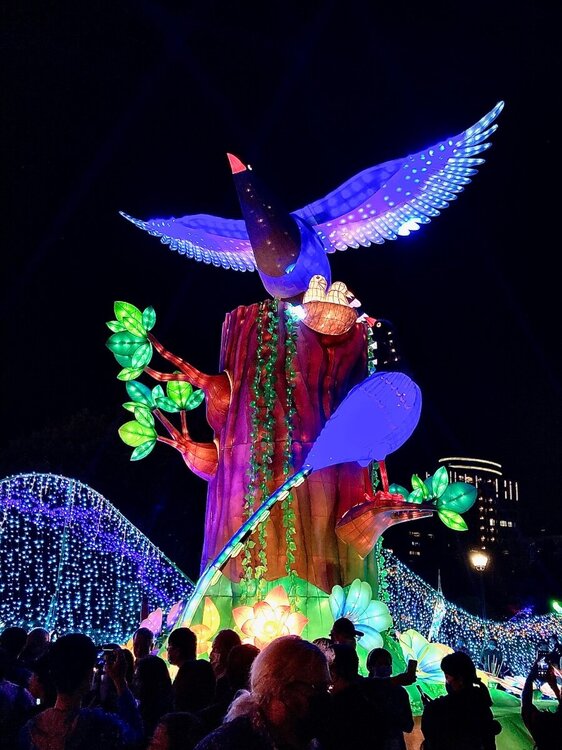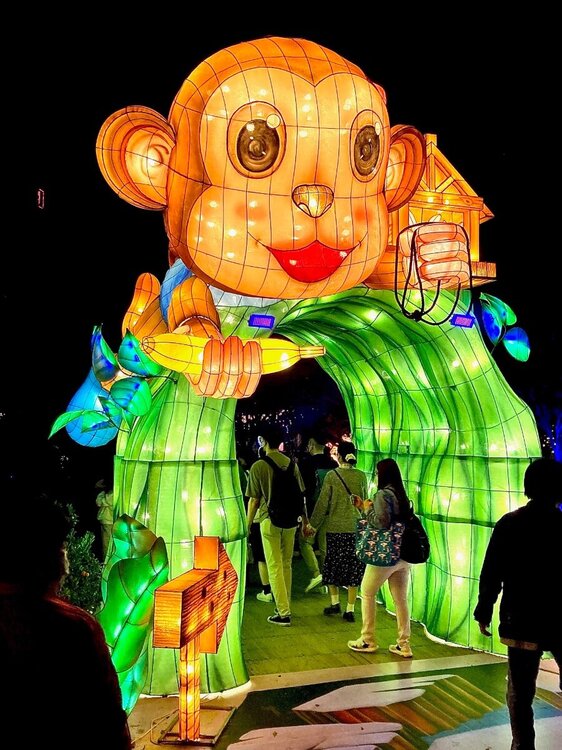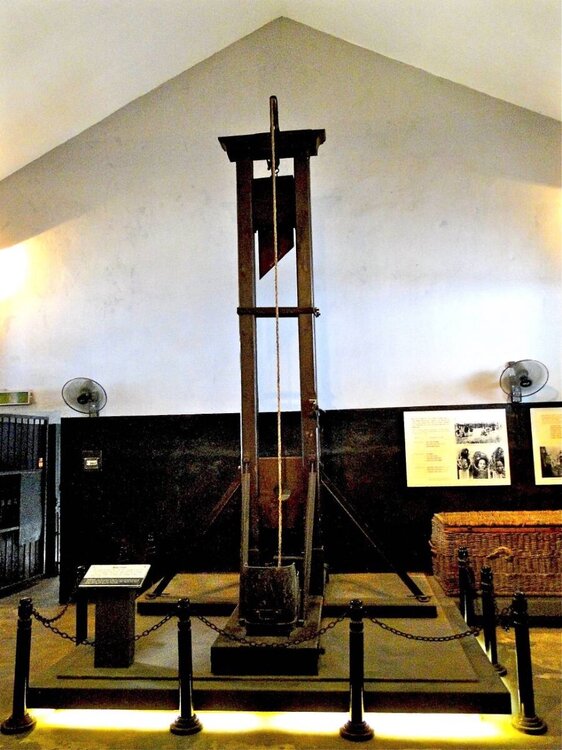
PeterRS
Members-
Posts
6,944 -
Joined
-
Last visited
-
Days Won
403
Content Type
Profiles
Forums
Events
Everything posted by PeterRS
-
I did not say Taiwanese are not interested in gay bars and clubs in Taiwan. Far from it! They go to many bars and clubs in Taipei - even one I have been to that is considerably more raunchy than those in Bangkok - although there are not as many of them. What I wrote was when they visit Thailand they prefer massage spas and some saunas to going to bars. That is where they prefer to have a sexual experience. They are in general - and obviously there are exceptions - much less interested in offing guys from the bars. As far as bars in Jomtien are concerned, many Taiwanese have only a basic comprehension of English - as I can attest from the conversations I have had in hot springs and saunas there. A solo Taiwanese sitting with a boy in a host bar whose English is also poor would not be of much interest to the clear majority. But I stand to be corrected on this as I have not been in Jomtien for at least 8 years. I had failed to notice your point about traditional Chinese. That was my error. I just assumed the vdo had perhaps been made in Singapore due more to its production values. Frankly, though, I still do not believe it is a vdo made in Taiwan for a Taiwan audience. If so, there would be no need for English! As it is uploaded to youtube, the blogger would surely have assumed it would therefore be of interest to gay guys around the region and not specifically to one country. Since it would be banned in China, traditional Chinese is more common in S.E. Asia than simplified Chinese. Having visited Singapore more than 35 times, however, and with Singapore friends, English is technically the first language. It is certainly the language used in most business and political affairs, taught in schools to a high level even though it is sometimes corrupted by many into Singlish. But a large percentage of younger Singaporeans who are now of travel age seek similar Chinese-speaking travel companions for trips to Thailand since for nearly 30% of SIngaporeans, Chinese is still their first language. That is obvious from reading Singapore websites. And like Taiwanese, they find sex less complicated to find in massage spas and saunas and on some apps. I have also not visited a gay bar in Bangkok in years, but there is another reason I doubt many South East Asians take boys from bars. Unlike quite a number of Japanese visiting Thailand who are happy enough to travel solo, Singaporeans and Taiwanese tend to travel and go to places in groups of two or more. They might still visit a bar, but rarely for the purpose of offing a boy. And with prices for drinks continuing to rise, merely seeing guys prancing in jeans or shorts and sometimes lady boy acts is hardly an attraction. They generally prefer clubbing and discos. As for the vdo, i have done some research. We really should realise that this is not a one off vdo. It is a typical video blog site which requires a membership fee. It contains no less than 250 individual videos which include ones on Tokyo, Osaka, Seoul, Busan, Taipei, Manila, Singapore, Bangkok and non-gay-related individuals and events like Chinese divers, Singapore musclemen, the Chinese swimming team and the amazing Taipei Lantern Festival two years ago.
-
Don't self-proof it before it goes to an official proof reader? That seems nuts to me. It basically means you take no responsibility for what you have written. It's the proof reader who gets the blame. No company I have worked for - and I am not a lawyer - would expect an individual NOT to proof his own work before it was fed on to someone else.
-
I use predictive text when i write word documents. Frequently I find that words have not come out the way I typed them. But I find that out by checking and then I can make the relevant corrections. Typing, especially on a phone, will always have some mistakes but I still think even a quick check on what appears on the screen can correct almost all of them.
-
I suspect that video is more for a Singaporean audience given that the subtitles are in both English and traditional Chinese. Few Taiwan videos include English. Also Taiwanese tend to be very massage spa oriented and there is no mention of any spa, although the video specifically refers only to bars and clubs. As for a wrap up of various places to go, it is very good. My idea is that one bar owner should take it on himself to market his own bar more or less as I suggested. If it can get on to youtube, all the better. But even if it is just for one particular gay app, it would be considerably better than the nothing they do at present.
-
No they shouldn't. Smoking is legally not permitted in bars.
-
And I often wonder why those who decide to post do not bother checking before clicking "Post". When someone's posts are usually just a few words - no names - checking just takes seconds.
-
I hope i did not mislead you. Almost all my friends have been to Thailand several times. They normally head to the usual gay haunts in Silom/Suriwong. As @10tazione has rightly pointed out, most Chinese in most countries with a large Chinese speaking community have their own apps in Chinese that we would have great difficulty navigating. Singapore has the Blowing Wind forum which caters to a much younger crowd than Gay Guides. It has a very extensive Travel section in English where mostly Chinese guys share their gay experiences and recommendations for the whole of Asia and some other countries as well. Some posters use it to seek travel companions. One of my Singapore friends whom i had not seen for almost seven years got in touch before he visited Bangkok a few weeks ago. He wanted to go to one of the Japanese-style hot springs. I recommended the newer of the two Yunimori onsen off Sathorn which i really enjoy. He said he'd prefer the older one off Sukhumvit (although it's actually much nearer Rama 4). I told him I had read some bad remarks about that particular onsen written by a member of this Board. But he claimed his advice was the opposite. So as he was the visitor, I agreed. And I was very surprised. I enjoyed the "old" Yunimori much more than I expected. I was also surprised that there were quite a few young guys whom I guessed were in their 20s/early 30s. I will certainly go again soon. If i was a bar owner and noticed Chinese and other non-western customers, I'd aproach them and offer them a number of free entries and free drinks - perhaps even offs - to promote my bar on the apps they read. I'd even pay a Chinese here in Thailand to write from my dictation a short blurb in Chinese along with some nice enticing photos of my bar. I'd make sure the photos were good as, as we all know, photos are generally worth hundreds of words. But that requires initiative, and as has been discussed so many times on this Board, that is a quaity sadly lacking from owners of gay businesses.
-
I had heard about Royal Spa but never went. I do believe it was exceptional in the services the masseurs offered. No doubt there are one or two more nowadays but judging from what I have heard they are difficult to find. I suggest it is best to assume the extras are HJs only and then be pleasantlly surprised if other services are offered/agreed to. The other problem that others have mentioned to me is that few registered masseurs will speak any English. That always struck me as odd since most Taiwanese I have met in the hot springs and the apps do have at least basic English.
-
Trump bankrupts yet another one, The Kennedy Center.
PeterRS replied to Stable Genius's topic in Politics
The reason the Kennedy Center is failing is because Trump unilaterally decided it was giving too much prominence to a democrat. So he renamed it the Donald J. Trump and John F. Kennedy Memorial Center for the Performing Arts. The problem is that a galaxy of artists have now refused to perform there. More problematic for the arts is that the Washington National Symphony Orchesta, one of the nation's finest, has nowhere else to perform in the city durig the two year closure. The Washington Opera had already stated it would abandon the Center and find other venues. Additionally, Trump will have to find a way of overcoming the deed which set up the Center as a memorial to Kennedy and paid for partly by public funds. Congress decided the Center's name and Congress will have to pass a reolution to change it. -
Reading another site based in Singapore with a major travel section, there is mention of a hot spring named Wulai66. Difficult to find descriptions but there is a sudden burst of posts about it. You access it via Xindian MRT station from which there is a shuttle bus to the Volando Urai Spa and Resort. A couple of the posts suggest this is the new hot spring most popular now with gay guys, even more than Huang Tzu. Judging by the comments on the website, I am not sure how accurate this is, but it certainlly seems a great place. It is much more in the country closer to New Taipei City and has great views plus the usual hot spring facilities. Tik Tok claims it is the "best gay hot spring in Taipei City". The hot spring is nearly one hour on the minibus and the shuttle should be pre-booked. The last one back to town is around 7:30 pm. So a taxi or public bus to the MTR station is necessary. It seems to be in an ultra-scenic location with lots of pathways and little old towns nearby. Not sure when i can get to it but I will write a report later in the year.
-
Sorry I have never taken a professional massage in Taiwan. From what I read in another forum where Asians love to go to Taipei for massages, they are not full-service, merely HEs. And although it is often remarked that there are too many Taiwanese bottoms on the island, I hear that this is very unusual for masseurs to top or bottom in professional spas. Sometimes extras can be negotiated, but I would not go to a professional masseur without checking what you are looking for first.
-
I agree Thais may not have any problem when they see an older westerner with a much younger Thai guy or lady. But the people who gawped at my bf in Venice were not Thai - they were I think English. I don't give a f--k what people think, but I got upset when I saw my bf embarrassed to the point where he was almost about to abandon breakfast and return to our room. I felt i had no choice but to do something to ease his concern. And I maintain i was correct in that situation in that particular year.
-
Please be assured my comment was not intended to be any slur on non-native English speakers. I was merely trying to compare @Olddaddy's usual posting style (which does sometimes have errors - as do mine) with that of Devinnt 6669 which has a lot more.
-
I would change "need to" to "must". In fact, I would go a lot further - even accepting I am not an American. I have only visited around 35 times. The entire political system in the USA is broken, is open to widesread corruption, needs a complete rethink and the vastly outdated constitution and its amendments thrown into the trash can with a more up-to-date one adopted that is far more suited to the 21st century.
-
I thought of that. But there were by that time quite a number of Chinese families actually living in Italy and a smallish number of tourists were already visiting, especially Venice. That's not to say I automatically assumed they were looking at an exotic gay couple. But as I suggested, continuously staring at us was both rude and impertinent and it made my bf feel quite uncomfortable, the more so as we had not encountered such staring in the other towns and cities we visited. I certainly doubt if they would stare at two westerners irrespective of age in such a way.
-
-
Her Majesty Queen Sirikit, the Queen Mother, has died.
PeterRS replied to mauRICE's topic in Gay Thailand
It will be a splendid spectacle and for many a unique event. Quite recently we had the cremation ceremonies for the late King and earlier his older sister, Princess Galyani Vadhana. It is likely to be some years before there is another honouring such a senior member of the Royal Family. -
I find this quite cute. At one time I would have been thrilled to have such a relationship as long I was in the middle betweeen two good looking and willing twins! Fah described their relationship as “stable and fulfilling”, adding that they have been sharing the same bed since the start of their relationship, with her usually in the middle. “As for sexual life, it is a natural part of a relationship. We do not schedule it, we just go with whatever is convenient,” she told the media.
-
In general I think that is probably true - but not always. More than 20 years ago I was in Venice with my Taiwanese boyfriend at the end of a 10-day visit to Italy. At breakfast on our first morning in the hotel dining room, he looked a little uncomfortable. When I asked why, he mentioned that a family at a nearby table were constantly looking at him. I told him not to bother, but that clearly did not help. So I told him he should just stop eating for a moment and stare back at them. But he was too shy (or Chinese) to do that. So I got up, went over to this family's table and stood there just looking at them. Clearly confused, after about ten seconds the father asked if I wanted something. I respectfully suggested it was rude and impertinent continually to stare at a young Taiwanese having breakfast with a westerner of any age. If they found my standing gazing at them awkward, how did they think my friend felt when they did the same with him? That put an end to it!
-
Finally I found the original post by Devinnt6669. It is definitely not written in @Olddaddy's usual style, he hasn't been to Thailand over 50 times and it has a ton of bad spelling and bad English which again is not his style. Most of us make typos from time to time but there are surprisingly dozens in that original post. When I read it for the first time i assumed it had been written by a non-Engllsh speaker. And having looked back over the old thread, I note that Debinnt6669 was in fact not a native English speaker - so my apologies to him. I also noted that a number of posters in that original thread have passed away. Firecat69, Abang and Thaiworthy. Rogie who used to be a regular poster has not posted in many years. I was quite surprised to note that in one post he also criticised Devinnt6669 for his bad English - but then he seems to have been a schoolteacher! Timmberty has also not posted in ages. Sic transit . . .
-
Former FIFA President: "Stay Away from the World Cup"
PeterRS replied to PeterRS's topic in The Beer Bar
And I reckon this, added to the exorbitant fees to attend matches, added to the idiocy of true fans of a nation's team having to take internal flights at inflated rates and pay for hotels at inflated rates will put a great many people off travelling to the USA. -
US$2,500 for some people is a lot of money! Perhaps not if you live in the middle of a major city like LA or New York, but those outside the USA might even consider it a small fortune.
-
Getting round ball-lke mooks injected into the penis is not uncommon in Thailand - and for all I know in other parts of Asia. These are supposed to add to the enjoyment of sex for women - and perhaps men as well for all I know. Personally I loathe the sight of such a tampered-with organ. As for enlargement, I would go with the advice of the Mayo Clinic. Don't believe the hype Companies offer many types of nonsurgical penis-enlargement treatments. They often promote them with serious-looking ads that include support from "scientific" researchers. If you look closely, you'll see that claims of how safe they are and how well they work haven't been proved. And these products may have potentially dangerous ingredients not listed on the label. Marketers rely on ads with people who recommend the product. Marketers also may use data that's not accurate and questionable before-and-after photos. Dietary supplements don't need approval by the U.S. Food and Drug Administration. So manufacturers don't have to prove how safe a product is or that it works. Surgery is risky and may not work Studies of surgeries to lengthen or thicken the penis have found mixed results in safety, whether they work (effectiveness), and patient satisfaction. At best, surgery may give a slight increase in girth to the penis. Or surgery may add a slight appearance of increased length to the non-erect penis. But it does not change the actual length of the penis. At worst, surgery can cause complications such as infection, scarring, and loss of sensation or function. https://www.mayoclinic.org/healthy-lifestyle/sexual-health/in-depth/penis/art-20045363
-
The Shangri La brand has aways been known for its rather over-the-top glitzy feel. Ages ago a year or so after it opened when hotel prices were quite ow and before the Krungthep wing was constructed I stayed there twice. This was before the Skytrain and getting there was a lot more difficult as one had to rely on tuk-tuks who would overcharge as soon as they heard the name of the hotel. Even in those early years, I felt the rooms were not up to par with other regional Shangri La hotels I had stayed in. During the rainy season with increased water flows coming down from the north and rising water levels coming up from the Gulf of Thailand, the hotel sometimes had a problem with flooding in their garden. Years later (but not the year of the disastrous flooding in 2011) I recall visiting and seeing sandbags not only on the river frontage but actually surrounding the pool itself! I hope since then it has increased the ground level of that garden area.
-
And a red hot one that had just come out of a fire at that!









